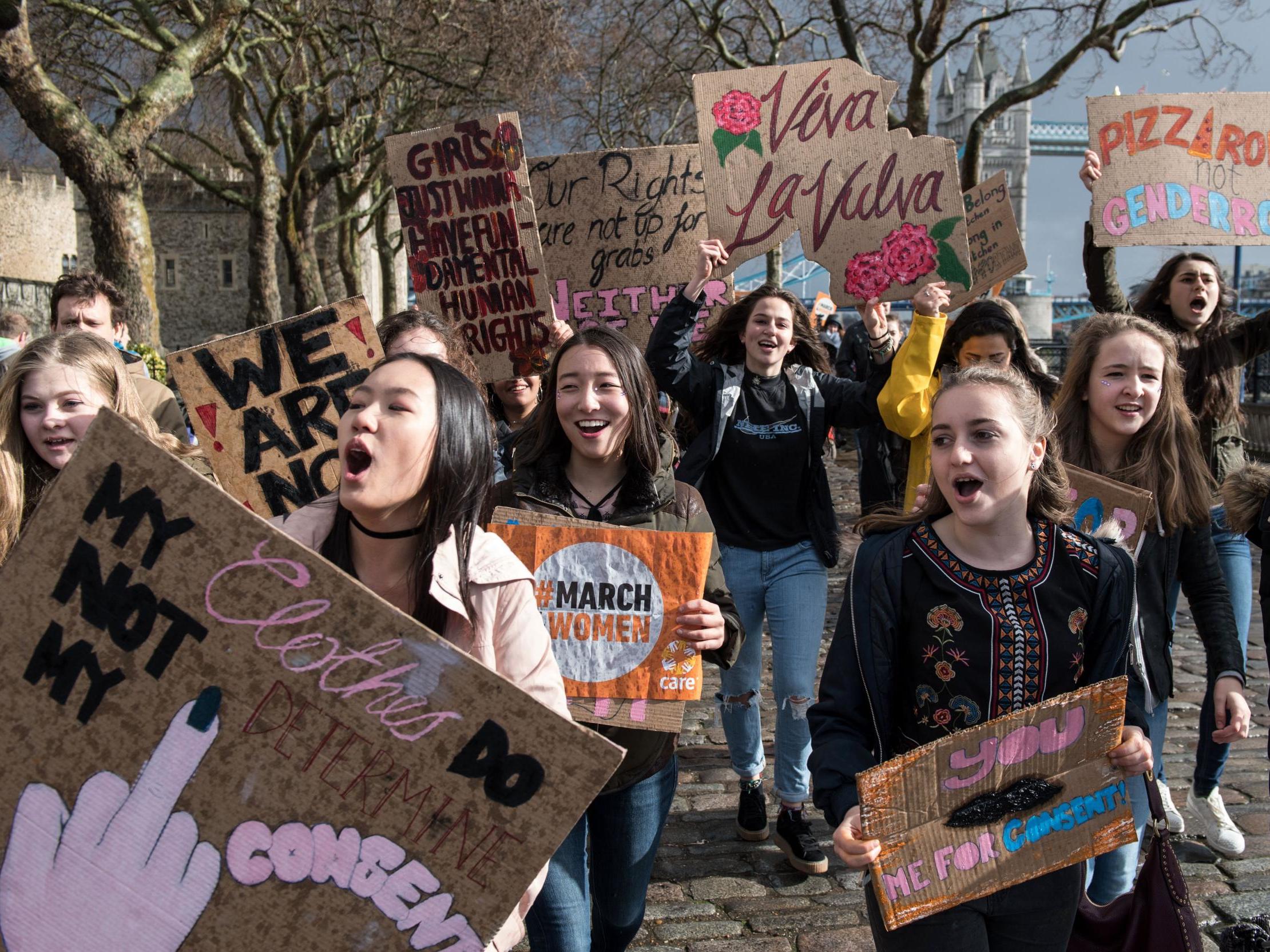International Women’s Day: The fight for equal pay for all women is far from over
The Global Gender Report 2020 shows that gender parity won’t be achieved for 100 years, but women working together can achieve anything, writes Rabina Khan


For the past six months, I have supported a group of British women of Bangladeshi origin who are facing redundancy, through no fault of their own. Their jobs have been the first and only of their lifetime, having been born and raised near their workplace. In total, between them, these five women have served in this workplace for 72 years.
They all began as full-time employed staff, and only became part-time when they had children. As stipulated under the Employment Rights Act 1996, the redundancy payout they received was calculated only on their part-time hours, even though they had worked far more full-time years than part-time years. Although some men will also be affected by this if they change their hours from full to part-time, many women are at a disadvantage as they are more likely to change their hours after having a baby, before phasing back into full-time work.
The Fawcett Society recently launched the Right To Know Bill at an event that I attended, which has cross-party support for a women’s right to know how much their male colleagues are being paid for performing the same role. It is a motion that I have submitted for debate at my council meeting in March to give women the right to know pay inequity in the council’s workplace.
The Global Gender Report 2020, which covers four areas of economic participation and opportunity, educational attainment, health and survival and political empowerment, revealed that gender parity would not be attained for 100 years.
It’s worth emphasising how stark this statistic is: none of us will see gender parity in our lifetimes, and neither will many of our children.
Have we become more accepting of our circumstances, or have our struggles made us as resilient as ever to demand an equal world? As women, are we doing enough, or are we too accepting of our lot and believe that no one will listen?
Baroness Lorely Burt, Liberal Democrat spokesperson for women, says: “Every year Women’s Day comes around and I mark the fact that we have made incremental steps forward, and some steps backwards. It behoves all of us who have a voice to speak out for a happier, more fulfilled and more equal world for women and girls.”
This year’s international women’s celebrations theme is #eachforequal, promoting the message that an equal world is an enabled world and is fundamental to thriving economies.
The 2020 March4Women will take place on International Women’s Day this Sunday before the UK hosts the United Nations Climate Change Conference in Glasgow later this year. The march will be a feminist call to action for politicians to play their part in addressing climate emergency. Singer Emeli Sande, who will perform as part of the rally, said: “The climate crisis affects every single one of us on our shared planet, but the poorest are enduring the worst of it – with women and girls disproportionately affected, as they so often are when disasters strike. It’s time we step up and demand a fairer world.”
There are many women who have had the tenacity and courage to fight for equality. Yet many more are silently enduring pay discrimination or are unaware they’re being treated unfairly. Even our own government is at fault. Recently, the Financial Times’ analysis of official figures revealed that despite the government wanting to make the civil service the UK’s most inclusive employer, four departments reported a widening of the gap between what men and women are paid.
The 2019 gender pay gap figures revealed that eight in 10 UK firms pay men more than women, but that women from Bame backgrounds are disproportionately affected. It is not because they are less educated – quite the opposite. Over the last 11 years, for example, more Muslim women than men are gaining degrees, yet despite evidence still shows they are still struggling to enter the labour market because of discrimination.
As I think of all the women I have met, supported, cried and laughed, struggled and celebrated with I am reminded of Isabelle Adelle’s words: “I can promise you that women working together – linked, informed and educated – can bring peace and prosperity to this forsaken planet.”
We women can do the impossible – however long it takes us.
Rabina Khan is a Liberal Democrat councillor for Shadwell in Tower Hamlets
Join our commenting forum
Join thought-provoking conversations, follow other Independent readers and see their replies
Comments